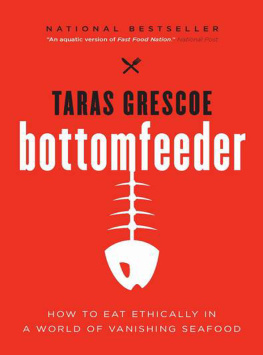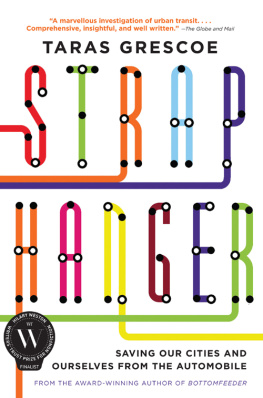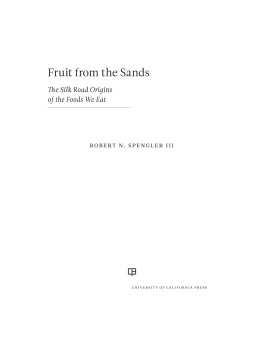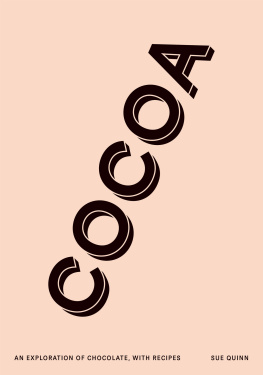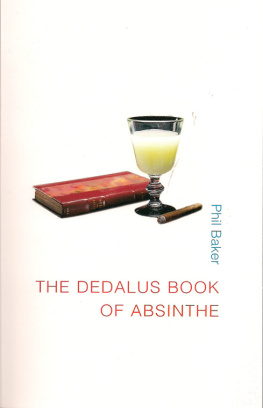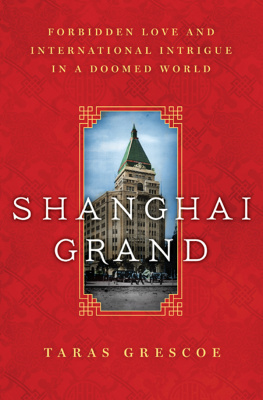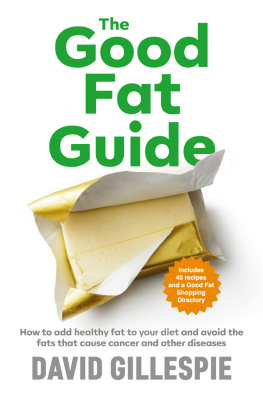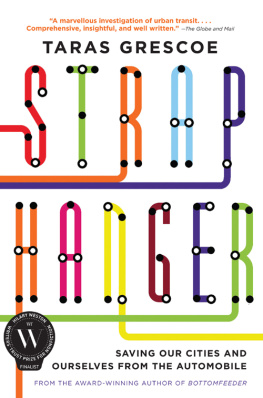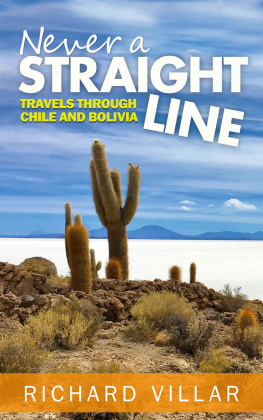The
DEVILS PICNIC
Around the world in pursuit of fprbidden fruit
TARAS GRESCOE

Use, do not abuse; neither abstinence
nor excess ever renders man happy.
Voltaire
CONTENTS
I VE SPENT THE last year flirting with the devil. Its been a risky experience, especially since hes been known to lead me astray in the past. But I seem to have survived the experience unscathed: I guzzled absinthe in the mountains of Switzerland and saw cocaine being made out of coca leaves in the Andes. I smuggled chewing gum and pornography into Singapore and puffed on Cuban cigars in San Francisco. And Ive brought back wicked souvenirs.
Once the last of the snow has melted, Im going to gather up my mementos and invite some of my closest friends to a picnic on the hilltop park in the center of my townthe one with the giant Catholic cross at its summit. Well have to pick a spot thats out of sight of the police who patrol the mountain paths on horseback, as the blanket will be spread with things vilified, demonized, and banned by the lawmakers of the civilized world. To awaken my guests appetites, Ill start with a shot of the 186-proof moonshine I picked up from a bootlegger in Norway. Then well have crackers and cheese: narcotic poppy-seed biscuits, banned in Singapore, spread with a reeking, five-week-old poisses, the same unpasteurized cheese that allegedly caused two deaths from listeriosis in France. For the main course, a mixed plate of delicacies, made following recipes I learned in Spain: a pottery dish of baby eels, killed with an infusion of tobacco, and a stew of bulls testicles in garlic and gravy. To clear the palate, Ill pass out air-polluting, emphysema-provoking Cohiba cigars, direct from Fidel Castros yanqui-baiting socialist dystopia. As a digestif: a shot of cloudy blue, epileptic-fit-inducing absinthe, bought from a clandestine distiller in the Swiss valley where the active ingredient, wormwood, has been cultivated since the eighteenth century. For dessert, the purest Basque chocolate, black inside as the devils ass is black from smoke, as the Marquis de Sade liked it, and spiked with powdered chili peppers. To stimulate the mind and soothe the soul, Ill bring a thermos of tea made from the leaves of the coca plant, one of humanitys oldest intoxicants, now uprooted in every nation of the earth by the minions of the DEA. The only souvenir I wont be able to offerits not the kind of thing I like to keep in my cupboard will be a shot glass of pentobarbital sodium, the final drink for suicide tourists who fly to Zurich to put an end to their terminal diseases. Ill be curious to see who has the courage to make it to the end of this infernal dejeuner sur lherbe. Every course consists of something guaranteed to offend the safety-conscious, the temperate, the holier-than-thou, the politically correct, the chickenshit.
Fortunately, there arent too many puritans in my immediate circle of friends. In fact, most of them are pretty broad-minded. Which seems appropriate: an open mind, its been said, is the devils picnic.
When you cant have it, you want it.
Its simple psychology. Hold a soother, a teddy bear, or a lollipop out of any toddlers reach, and hell throw a tantrum. Deny him something hes never seen before (a new toy, a never-before-sucked lollipop, the latest Disney DVD), and hell become so obsessed with obtaining it hell refuse to eat and begin to babble of nothing else.
Parents understand this phenomenon. Teenage babysitters understand it. Older brothers and sisters understand itand exploit it. Governments, in contrast, never seem to get it. Generation in, generation out, they select certain goods and substances and tell their citizens they cant have them, on the ground theyre harmful, addictive, immoral, or demotivating. Then they react with shock when their citizens start to act like naughty children, breaking the law to get at what theyve been deemed too immature to handle. The whole situation is absurd. Its philosophically indefensible. Most of all, its an immense waste of social and economic resources. Punishing and incarcerating people for their appetites and excesses costs society billions of dollars a year and increases the sum total of human misery immeasurably. It also ignores a simple truism: ban something, and it becomes stronger, costlier, and more coveted than ever before.
Its too bad, because never in history have we been in a better position to indulge our most extravagant desires. Thanks to globalization, middle-class North Americans and Europeans can click on a mouse and order saffron from Iran, pashmina scarves from Nepal, or brand-name runners from the sweatshops of China and have them appear in a FedEx box on the doorstep the next daya command of the worlds resources that was not even enjoyed by Roman nobility or nineteenth-century European aristocrats. The days of the Catholic Churchs Index of Prohibited Books are long gone, and we flatter ourselves that we live in a period of unprecedented freedom, in which we can read Ulysses and Lolita in public, surf risque Internet sites and watch Arabic satellite networks, eat bacon or take snuff without being terrorized by arcane religious prohibitions.
This freedom is an illusion. In the twenty-first century, the world is still riddled with atavistic interdictions. This is not merely a matter of the Hindu ban against eating sacred cows or the Islamic injunctions against gambling and intoxicants. The following activities are strictly prohibited in North America (with penalties, in some American states, ranging up to life imprisonment): planting hemp or tobacco seeds in ones garden; bringing a few ounces of authentic farmstead Camembert through customs; selling or drinking real absinthe; soothing a headache with a cup of poppy or coca tea. Every one of these prohibitions, born in climates of xenophobia or moral panic, offers an insight into societys phobias: foreign contamination; unchecked hedonism; the insidious undermining of the work ethic.
In an era of fearfear of terrorism, fear of foreign ideas, fear of our fellow citizenswe seem all too willing to allow our individual liberty to be eroded in the name of increased security. Demonization is the age-old tool of power, and its buzzwordsevildoer, taboo, zero toleranceattach a spurious mystique to activities that might otherwise be perceived as anodyne, pathetic, or merely banal. The ostensible targets of prohibitions are the substances that authority (in the form of the state, the imams, community standards, the Vatican, international bureaucracies) declare noxious. The real battleground is our own bodiesand the ultimate casualty is our sovereignty over ourselves.
I, for one, have always been fascinated by the forbidden. As soon as I encountered the words absinthe, hashish, and opium as a teenager, I was dreaming up ways to get my hands on them. Ive never understood the incurious who draw the line at experimenting with different sensations, and different forms of consciousness, merely because they are circumscribed by the current crop of laws. In my experience, those who choose to cross the linethe born rebels, the neer-do-wells, the independent thinkersalso tend to be the best company. (In contrast, those obsessed by the linethe alcoholics, drug casualties, the sad addictscan be torrential bores.)
I began this year as a kind of Aleister Crowley with a backpack, determined to track down and try all that was forbidden, scornful of any suggestion that my desires should be regulated. After twelve months of traveling, through seven different countries, Ive encountered vastly different attitudes toward prohibitions, ranging from welfare-state tolerance to nanny-state fury, from urbane indifference to xenophobic hysteria; not to mention the perplexed patience of those in the developing world whose livelihoods are threatened by foreign prohibitions. The world changed my outlook, as it always does. If I started out as something of a libertarian, in favor of legalization, I ended up with a more nuanced view of how prohibition, and particularly drug prohibition, could be handled.
Next page

